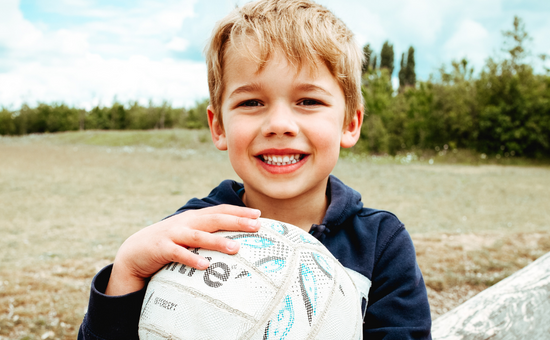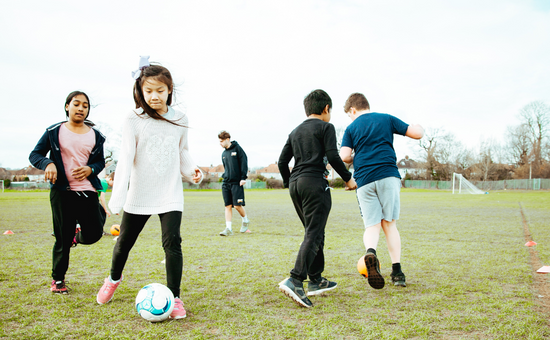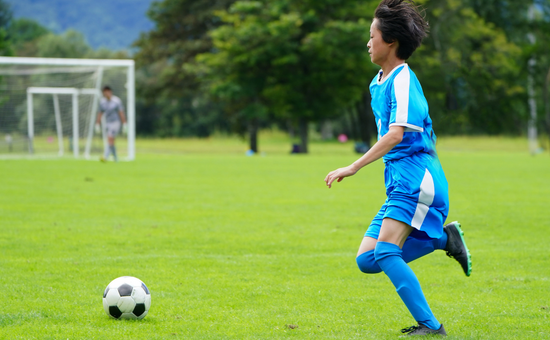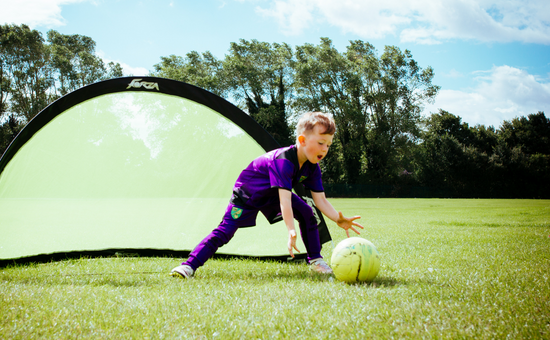Schools Football Week Activities
Schools Football Week 2023
Schools Football Week runs from 6th – 12th February 2023 and is an opportunity for schools, teams and clubs to embrace schools’ football and the wellbeing benefits it provides to pupils and players.
The week is a celebration of the importance of schools’ football, both competitive or recreational, and provides teachers and coaches with tools to profile the benefits of schools’ football within their educational establishment.
Last year’s Schools Football Week raised the profile of girls’ football in schools and promoted the importance of equal access to school’s football for both boys and girls. It saw record levels of participation, with 142,881 pupils from 815 schools benefiting from the event. This included participation by 57,000 girls.
Reinvigorated by the incredible success of the Lionesses, this year’s event will continue to celebrate girls’ and all schools’ football.

The importance of Schools’ Football Week:
- To share the value and importance of Schools’ Football across England
- To highlight the mental and physical health benefits of playing sport
- To elevate and promote participation numbers, particularly of girls within schools’ football
- To showcase the talent and dedication shown by schools in England to support football as part of the curriculum
As a result, Schools Football Week presents the perfect opportunity for schools to spotlight on physical activity while championing values like inclusivity, participation, teamwork and camaraderie.
Benefits of football for kids
Playing football comes with a range of physical and cognitive benefits.
It’s not only excellent for physical wellbeing – promoting speed, agility, coordination, agility and cardiovascular health – but it’s brilliant for encouraging teamwork, communication and social skills. Footballers develop skills such as resilience, sportsmanship and fair play, and in playing against different opponents of varying skills, players become adept at problem solving.
Skills development
At a professional level, football players are required to perfect a range of skills to improve muscle memory and ability. These skills include passing, receiving, dribbling, tackling, ball control, shooting and spacial awareness.
At primary level, activities should be fun above all else, so it’s a good idea to play lots of themed games during Schools’ Football Week.
Games don’t even need to be football-focused. Learning to play football is about building physical, social and mental skills as well as more technical football skills – so there’s nothing wrong with incorporating other sports into the mix such as football golf (instead of using a club players kick a football into a hole or target area), or football cricket (a football replaces a cricket ball and players kick the ball to score runs rather than use a bat).
Boys and girls will respond to creative and engaging games which help them to improve overall physical literacy.

Assess your commitment
Schools keen to champion a commitment to pupil health and wellbeing will embrace an opportunity like Schools’ Football Week and see that it’s fully incorporated into school life across the week.
Will activities be taking place in PE lessons only? Will schools formulate break-time events for children to get involved with in between lessons? Are all teachers going to support it or will it fall only to the PE department? Does it align with your educational environment?
An event like Schools’ Football Week isn’t just an opportunity for schools to play and talk about football. It’s a reason to raise the importance of health education and of leading a physically active, healthy life. Teachers can talk about the wellbeing benefits of football during assemblies or establish cross-curricular links by connecting football with numeracy, geography, writing, reading or languages.
Fun games to play during schools football season
Celebrate the enjoyment of sports by playing some fun, themed activities in PE lessons.
Here are some of our favourites:
Sharks and Minnows
Mark out a playing area with cones. Assign a role of the ‘shark’ to one child, the rest will be minnows.
The aim of the game is for the minnows to make it from one side of the playing area to the other. Each minnow has a ball and needs to dribble it to the other side without being tackled by the shark.
Every time a minnow loses the ball, they become a shark with the game continuing until there is only one minnow left.
It’s not only a brilliant exercise in ball control and dribbling, but it’s fantastic for spacial awareness and tackling. Plus, all children are in play at the same time so active time is maximised.
Traffic Lights
The game takes place in a large, designated playing area. Each player has a football, with which they must dribble around the area in any direction of their choosing.
Before the game begins, assign three different instructions to each of the different traffic light colours, which pupils need to listen out for and follow. For example:
Green = go faster
Yellow = slow down
Red = stop.
Players must follow the instructions and adjust their dribbling and ball control to match the different colours of the traffic lights, all while moving around one another. As the game advances, players can start to be eliminated if they are the last to follow the instructions.
It’s not only a fun game to help build confidence and improve ball skills, but it’s great for decision-making, coordination and spatial awareness.
Launch a local schools cup
Working collaboratively with other schools can reduce the workload and increase the scale or impact of events.
If you are part of a local cluster of schools or have good relationships with other primary schools in the area, why not launch a schools cup? It will give older children the chance to play against other teams in a friendly and supporting educational environment, giving them an early taste of the competitive game, but with a focus on fun, participation and inclusivity.
The hosts can arrange a fun, group warm-up followed by short games in a tournament style. School competitions are a brilliant way for building camaraderie and teaching children the importance of good sportsmanship.
At half time, conduct a group team talk about the game – what went well, and what areas can the teams work on. At the end of the second half discuss lessons learnt and skills developed. Each match presents new learning opportunities – and it doesn’t matter if you win, draw or lose.
All players walk away with a certificate or medal for participation, with a bonus prize awarded by the home side to the team which played the most inclusive football. That way, the tournament celebrates values such as diversity, participation, progress and effort.
It’s not only a fantastic way to embrace schools football, but it presents so many opportunities to engage young people in the benefits of physical activity – right from the beginning of the day up until the final whistle!

Arrange a school visit from a local pro
Children are inspired by role models so a great way to harness engagement with Schools Football Week is to invite a local professional player, coach or manager into the school to talk to pupils about the benefits of playing sport.
As this year’s event is focusing on girls football, why not approach a local female player who started out playing for a girls team? Children love hearing real-life stories of players who have enjoyed success in a particular field or have overcome obstacles to prevail in a certain arena.
Contact your local football club or grass-roots football association – often they’re only too obliging to work with young players and improve community engagement, especially if they’ve competed for their school, club, county or country.
Top tips – how coaches and teachers should approach Schools’ Football Week
Teacher enthusiasm and creativity are crucial to making a success of Schools’ Football Week. Here are our top tips for making the most of the opportunity:
- Encourage as many touches of the ball as possible
- Promote creativity and freedom
- Avoid large-sided games which require lots of queuing or waiting around
- Promote success in ways other than competition – see success in terms of participation, motivation, inclusion or effort
- Ensure that time is managed and active time is maximised – young players should be kept active, moving and engaged
- Use challenges that are age and ability appropriate
- Support children to build stronger peer relationships

PE enrichment at your school
Football is one of over 40 different sports and activities offered by Premier Education, as specialists in physical activity delivery in primary schools.
Whether it’s launching and running a dedicated football after-school club, hosting a multi-sport holiday camp or enriching overall PE provision, our network of industry-leading activity professionals will improve the delivery of sport and physical activity in your school.
Find out more about how Premier Education supports schools.

